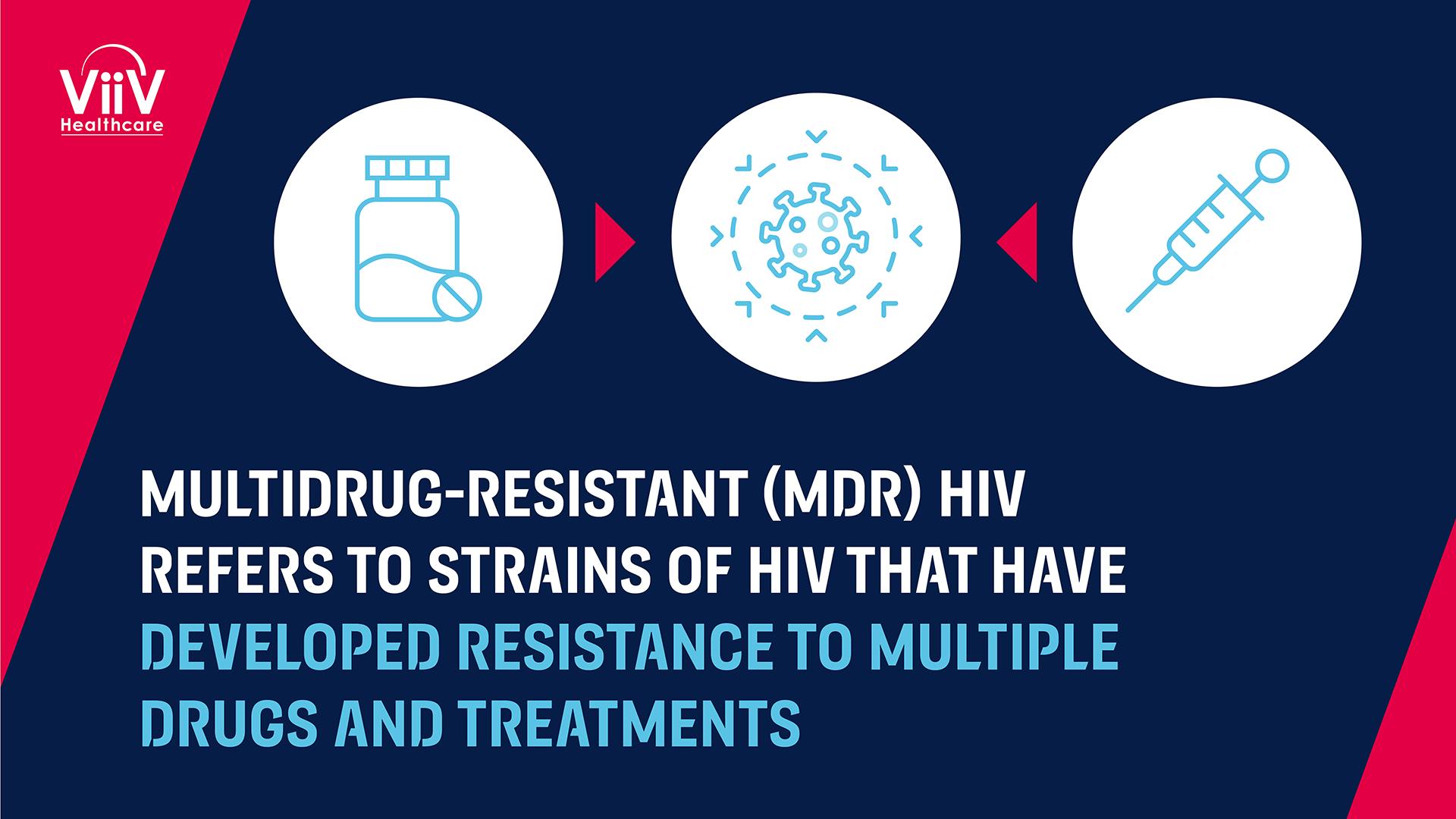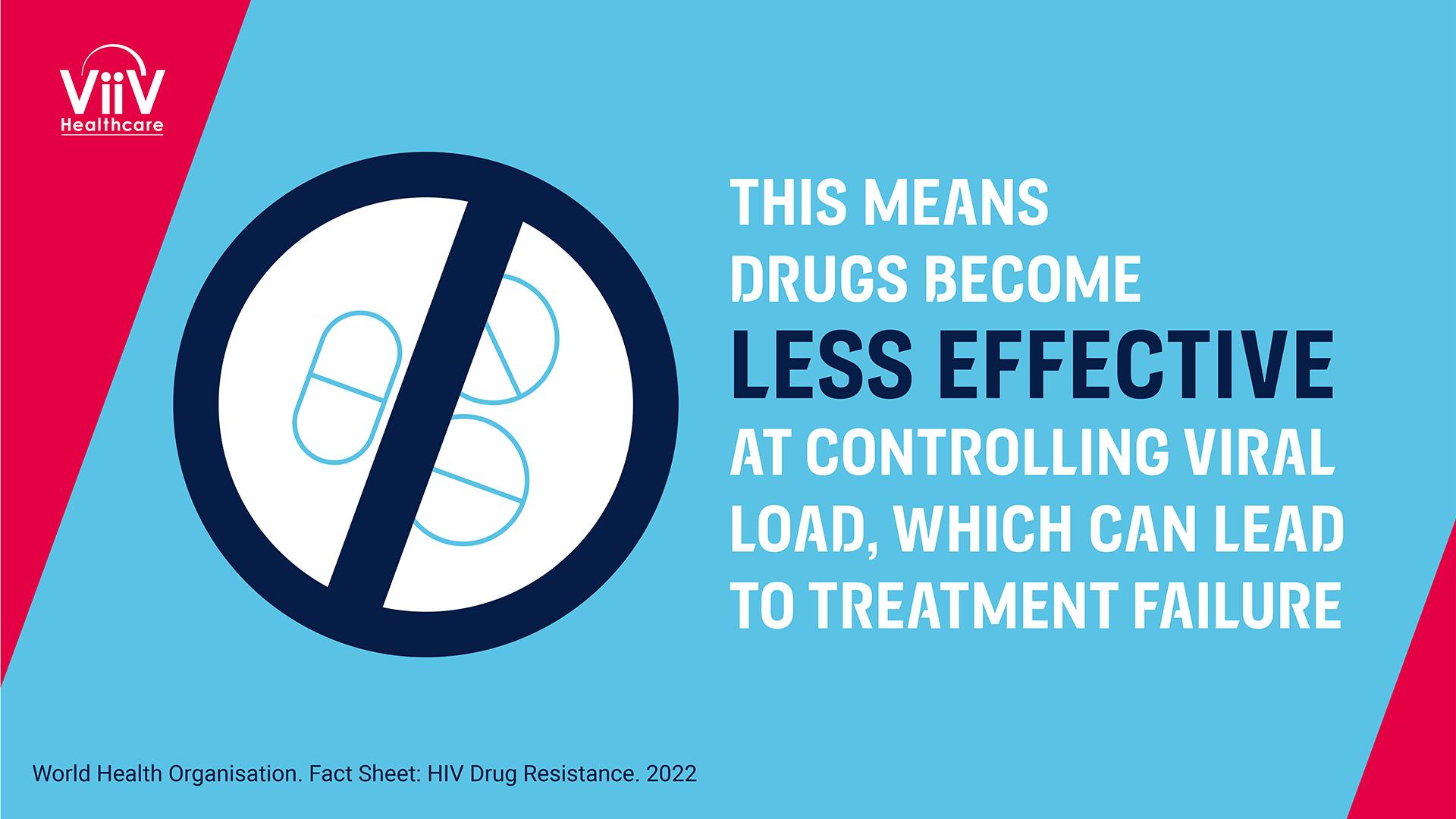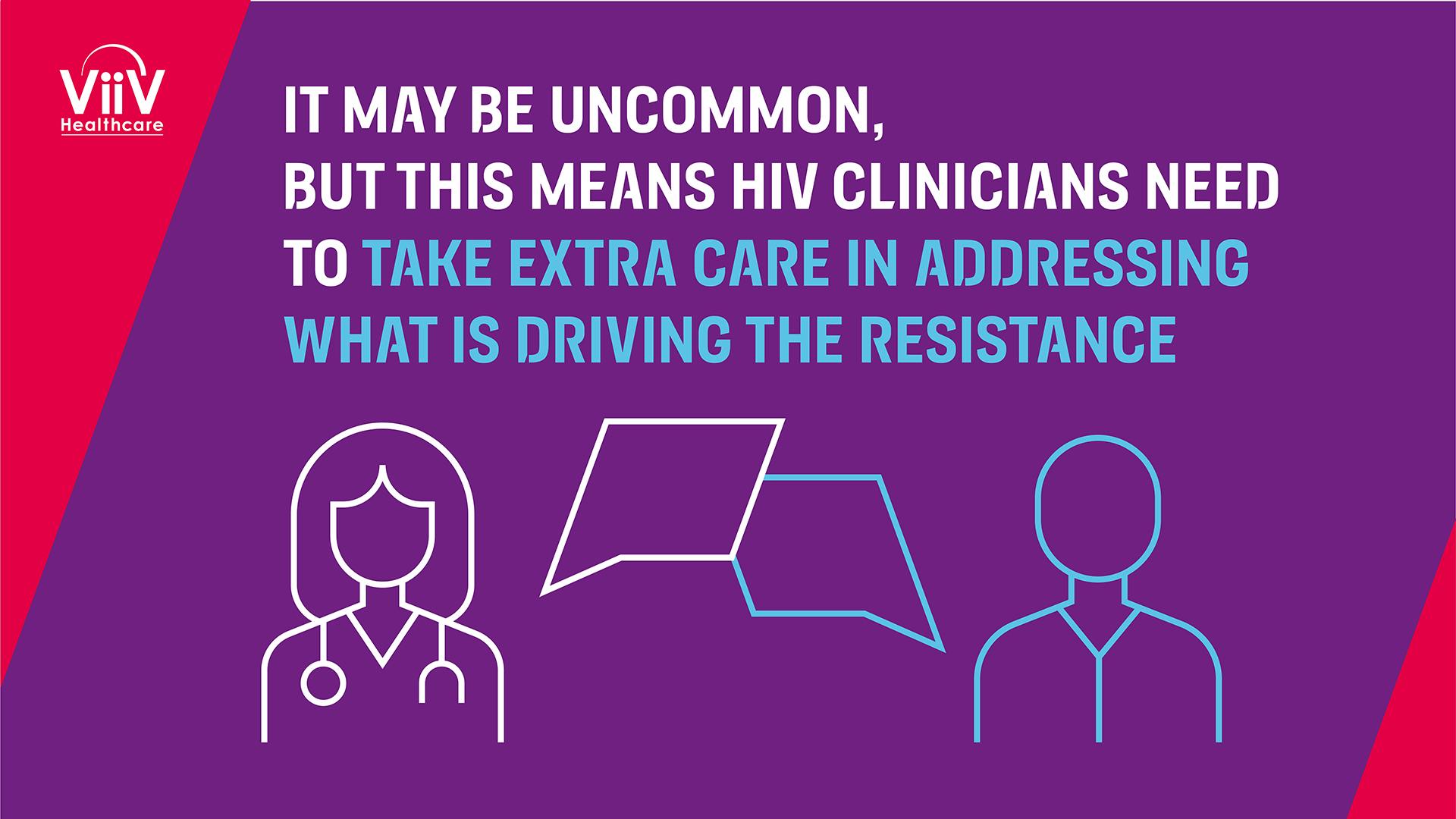MULTIDRUG-RESISTANT HIV: WHAT IS IT AND HOW DO WE MANAGE SUCH A COMPLEX CONDITION?
Thanks to significant improvements in the management of HIV over the last decade, many people living with HIV who are diagnosed early can achieve effective viral suppression and are able to lead long lives with good quality of life. However, increased and prolonged use of HIV medication has posed a new challenge; the emergence of multidrug-resistant (MDR) HIV associated with episodes of virological failures.
Put simply, MDR HIV is caused by genetic mutations or changes to the virus, driven in some cases by suboptimal adherence to prescribed medication, which can reduce the effectiveness of antiretroviral treatments. Between 5% and 10% of people living with HIV in Europe are believed to have MDR HIV, while in North America around 3% of people living with HIV are affected by MDR HIV.1,2,3 After taking care of and treating people living with MDR HIV for over 40 years, I want to emphasise the challenges posed by MDR HIV and support other healthcare professionals (HCPs) in managing and treating this complex condition.



Treating the individual, not just the virus
The first and most important step towards delivering personalised care for someone living with MDR HIV is to assess their full medical history to understand how the resistance has occurred and decide on the best individualised treatment approach. This may seem straightforward, but in some cases, it can be difficult to access a patient’s medical records. This challenge, combined with the general complexities of MDR HIV and how it is diagnosed, make it even more important for HCPs to consider a holistic approach to care for this patient group.
To improve health outcomes for those with MDR HIV, a strong multidisciplinary team is crucial. This includes HIV specialists and expert virologists who can determine the best available treatment for that person. Additionally, specialists like endocrinologists or cardiologists should be consulted if they have been multiple treatments over time and are experiencing age-related health issues.
Beyond the physical: MDR and its psychological impact
There can be significant stigma associated with HIV care, which can impact their overall quality of life. There is a constant worry on whether the treatments are working, or that they do not have enough options available. These can all impact their well-being and health. HCPs have an important role to play in helping their patients overcome these psychological challenges. Providing access to a psychologist or counsellor may help them to understand and work through previous or existing challenges with treatment adherence, as well as equipping the individuals with tools to address stigma. Another factor that can improve an individual’s mindset and outlook on the future is the introduction of new drug classes. For someone living with MDR HIV who has rarely or never been undetectable, discovering alternative treatment options can be a real game changer.
There isn’t one single profile for MDR HIV, there are many, and we need to deal with individual patients to identify individual problems and recommend tailored solutions.
What’s next for MDR HIV care?
Despite current challenges, I am optimistic about the future of MDR HIV care for two reasons. Firstly, great strides are being made in HIV research and over the next few years we may see the introduction of new drug classes with novel mechanisms of actions. HCPs may therefore have more treatment options to choose from, ultimately improving the quality of life of their patients. Most importantly, these potential alternative treatment options could provide much needed hope to people living with MDR HIV.
Secondly, I am excited about the potential of digital technology to improve the way we identify MDR HIV and assess medical history. In my own practice, I have found the Stanford HIV Drug Resistance Database and Liverpool HIV Drug Interaction Checker to be valuable resources. They allow for faster and more in-depth appraisal of resistance patterns and evaluation of treatment approaches. Innovative tools, coupled with a multidisciplinary approach to care, can transform the way MDR HIV is treated and ensure we are leaving no person living with HIV behind.
References:
- Judd A., Lodwick R., Noguera-Julian A., Gibb D., Butler K., Costagliola D., et al.. (2017). Higher rates of triple-class virological failure in perinatally HIV-infected teenagers compared with heterosexually infected young adults in Europe. HIV Med. 18, 171–180. doi: 10.1111/hiv.12411, PMID: [PMC free article] [PubMed] [CrossRef] [Google Scholar]
- Galli L., Parisi M. R., Poli A., Menozzi M., Fiscon M., Garlassi E., et al.. (2020). Burden of disease in PWH harboring a multidrug-resistant virus: data from the PRESTIGIO registry. Open Forum Infect. Dis. 7:ofaa456. doi: 10.1093/ofid/ofaa456, PMID: [PMC free article] [PubMed] [CrossRef] [Google Scholar] [Ref list]
- Puertas M. C., Ploumidis G., Ploumidis M., Fumero E., Clotet B., Walworth C. M., et al.. (2020). Pan-resistant HIV-1 emergence in the era of integrase strand-transfer inhibitors: a case report. Lancet Microbe 1, e130–e135. doi: 10.1016/S2666-5247(20)30006-9, PMID: [PubMed] [CrossRef] [Google Scholar] [Ref list]
NP-GBL-HVX-COCO-230022 December 2023
If you get any side effects, talk to your doctor, pharmacist, or nurse. This includes any possible side effects not listed in the package leaflet. You can also report side effects directly via the GSK Reporting Tool link https://gsk.public.reportum.com/. By reporting side effects, you can help provide more information on the safety of this medicine.
If you are from outside the UK, you can report adverse events to GSK/ ViiV by selecting your region and market, here.